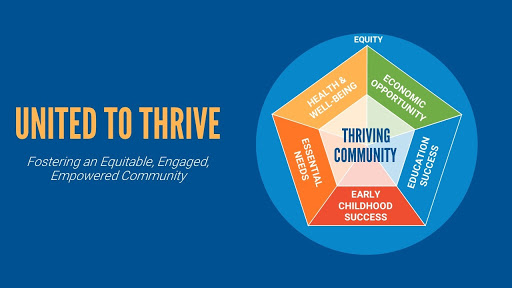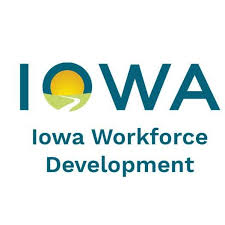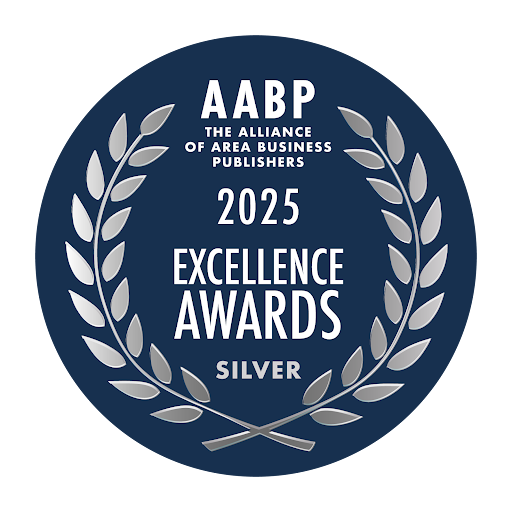United Way unveils new “United to Thrive” strategic focus

This image showing areas of emphasis under the United Way of Central’s Iowa’s United to Thrive strategic focus was unveiled Thursday by United Way.
The new expanded areas of focus for the United Way of Central Iowa “encompass a more holistic definition of what is needed to not only survive but also thrive in Central Iowa,” President Elisabeth Buck said.
The United Way of Central Iowa unveiled its new strategic “United to Thrive” focus Thursday during a virtual meeting called Beyond 2020, where it outlined its areas of focus moving forward.
The United Way of Central Iowa has been guided in recent years by its Community Goals for 2020, which were established in 2008 and focused on education, income and health. Under “United to Thrive,” those focuses will be expanded into five elements of a “thriving community,” Buck said in comments ahead of Thursday’s event.
According to Buck, those elements are:
- Essential needs. “It’s so important for Central Iowans to live in stable and healthy places with essential support they need because if they don’t have those essential needs met, it is so hard to thrive and do well in the other areas that are so important.”
- Early childhood success. “We know that if kids in our community start out healthy and ready to learn, it makes a huge difference in their education success beyond early childhood.”
- Education success. “Academic success is so important for the future of kids in our community.”
- Economic opportunity. “This focuses on Central Iowans having sufficient income to build wealth.”
- Health and well-being. “It goes way beyond just physical health and includes mental.”
“We’re really excited about these changes that look at a broader way of looking at these important differences and launching these five elements of a thriving community versus just the three we had in the past,” Buck said.
The United Way of Central Iowa formed a strategic team that used community input through surveys, focus groups and town hall meetings to develop the future strategic focus, Sean Vicente, United Way board chair-elect, said during Thursday’s event.
As many as 5,000 people responded, ranging from company CEOs to folks who have lived through certain experiences and hared their stories.
Vicente said the new focuses will be data-based with metrics put in place to measure success.
“To measure our progress we really have to establish goals and metrics that we will use to measure them in a way that is really holistic and represent the work and the things we want to accomplish,” he said.
Vicente said equity will be the focus and the lens that will be applied to everything the United Way does.
He said that the group’s 21-Day Equity Challenge last fall was only a start and that more work is needed.
“We believe it’s time that the United way became a leader in identifying and executing on solutions to reduce or to remove those inequities through our investments, our advocacy and our volunteers,” Vicente said.
The events of the past year and issues surrounding the coronavirus pandemic, equity and racial justice influenced the community conversations that went into developing the new strategic focus, Buck said.
“All those events and the divisiveness that our country and community has felt during this last year really came through in our community conversation and surveys, and I think that’s why we’ve landed on this key focus of ‘United to Thrive’ because I think at no other time in our history has it been more important to unite the caring power of our community than it is today,” Buck said in comments before the event. “People are looking for that. They want to belong to something that brings us together to deal with these issues and they just don’t know how to get engaged, so that’s where the United Way comes in.”
Buck said the work on closing equity gaps will help the community “to really zero in on specific areas of intense need and the progress we really need to make, which will dramatically improve our community’s overall ability to thrive.”
Priorities will be closing equity gaps in education and at-home learning, where Buck said students, especially English-language learners and students with special needs, have struggled during the pandemic, and helping those struggling financially, those facing eviction and those struggling with food insecurity.
“There are some pretty stark areas that our community is really going to have to roll up our sleeves and make our community better than it was before COVID, and we all know that’s possible,” Buck said.











